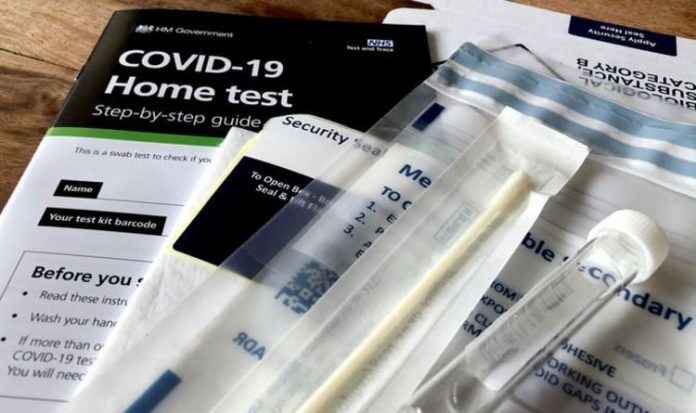Public Health England has identified 105 cases of the mutated strain, including 11 with no links to travel to the country. Everyone aged over 16 in eight postcodes where cases have emerged will be strongly urged to take part in “surge testing” to break chains of transmission. Mobile testing units are being deployed and local authority teams will go door-to-door distributing home kits.
Health Secretary Matt Hancock said: “It is vital that we do all we can to stop transmission of this variant and I strongly urge everyone in these areas to get tested, whether you have symptoms or not.
“The best way to stop the spread of the virus – including new variants – is to stay at home and follow the restrictions in place. Until more people are vaccinated this is the only way we will control the spread.”
The new South African variant is thought to be more transmissible but there is no evidence it is more severe.
Experts believe vaccines should still protect against it, although early studies suggest their efficacy may be reduced.
Postcodes affected are in London (W7, N17, CR4), the West Midlands (WS2), the East of England (EN10), the South-east (ME15, GU21) and the North-west (PR9).
The discovery of at least 11 cases not linked to travel suggests the strain is now spreading within communities. A small number were in household clusters but most did not appear to be connected. However, officials hope the spread is contained to local “pockets” and can still be halted.
Dr Susan Hopkins, strategic response director at PHE, said: “We are ramping up testing in targeted areas, so we can gather more information and effectively monitor any further community transmission.”
NHS Providers chief executive Chris Hopson said the lack of connection to travel or previous cases was “a real concern”. He said: “We would urge everyone who is asked to take tests to give their full support to this vital work.
“This is a reminder that the threat from the pandemic is real and potent. None of us can afford to relax our guard.
“It’s never been more important for everyone to play their part by following the rules to keep cases down so the NHS can provide the best possible care for all patients, Covid and non-Covid.”
Scientists have been keeping a close watch for variants by conducting genetic sequencing of five to 10 percent of all positive Covid-19 tests.
A standard Covid test cannot distinguish between variants, meaning there are likely to be more cases. Any positives identified through surge testing will also be sequenced to check for the variant.
Mr Hancock added: “The UK is a global leader in Covid-19 genomics, and because of this, we have been able to identify new strains of the virus and take decisive action.
“We continue to closely monitor new variants, here and around the world, and in addition to our already extensive testing service, we are making surge testing capacity available to affected areas.”
Results for the Janssen Covid-19 vaccine last week suggested the jab was 57 percent effective in a South African trial – where the new variant was dominating – compared with 72 percent efficacy in the US.
Jonathan Ball, professor of molecular virology at Nottingham University, said: “We know that some coronavirus variants might be less easily killed by antibodies raised against some of the existing vaccines, but the levels of immunity are hopefully still sufficient to prevent serious disease.
“But we can’t be certain that vaccine immunity might not be adversely impacted, especially after a single dose, which is why it is important to try to prevent these variants from spreading widely.”
A further 18,607 cases were recorded yesterday, down 16 percent on last Monday. Some 406 Covid-19 deaths were reported, compared with 592 a week ago.
Meanwhile, experts at King’s College London said they had found no major differences in symptoms caused by the UK variant, compared with the original.
Their research looked 1.76 million users of the ZOE Covid Symptom Study app between September and December.
Dr Claire Steves said both types can cause headaches and sore throat “in addition to the classic triad of cough, fever and loss of smell”.







